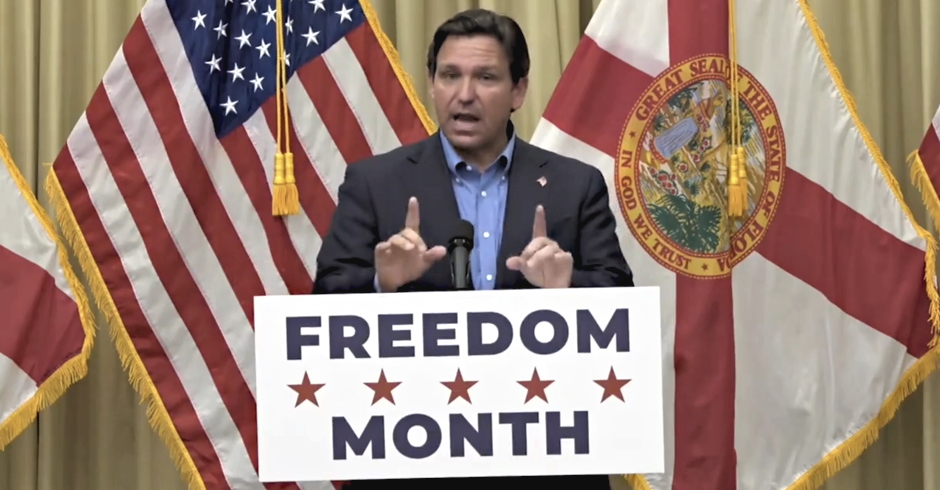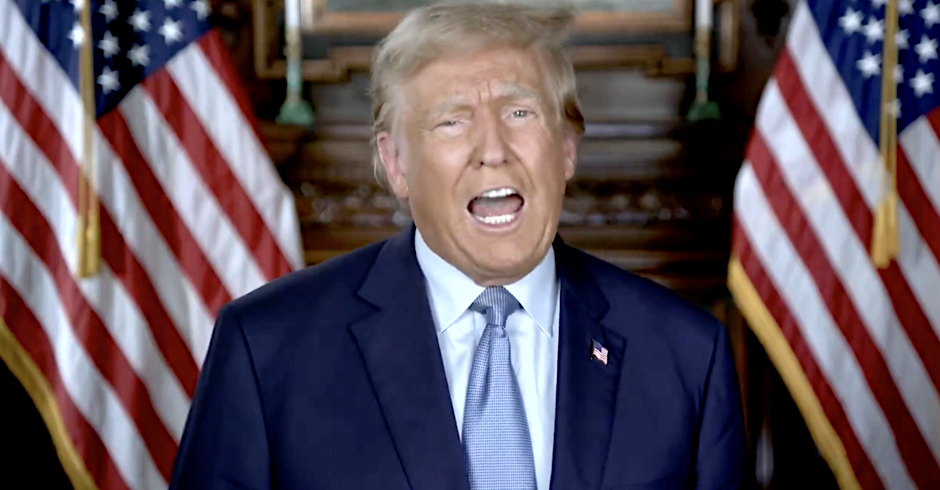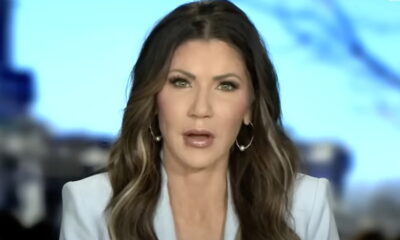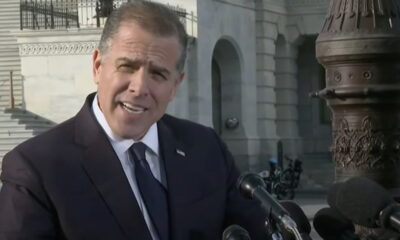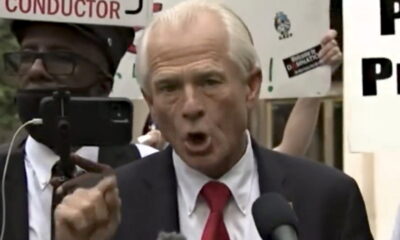Today’s Prop 8 Trial: Ted Olson’s Opening Remarks
Ted Olson, the Conservative attorney who, along with Democrat David Boies, are spearheading the battle to overturn Proposition 8, spoke today in federal court. Here are his opening remarks. It’s long (1646 words.) It’s worth it.
I’ve taken the liberty of marking in bold the parts I thought were especially compelling. Here you go:
This case is about marriage and equality. Plaintiffs are being denied both the right to marry, and the right to equality under the law.
The Supreme Court of the United States has repeatedly described the right to marriage as “one of the vital personal rights essential to the orderly pursuit of happiness by free men;†a “basic civil right;†a component of the constitutional rights to liberty, privacy, association, and intimate choice; an expression of emotional support and public commitment; the exercise of spiritual unity; and a fulfillment of one’s self.
In short, in the words of the highest court in the land, marriage is “the most important relation in life,†and “of fundamental importance for all individuals.â€
As the witnesses in this case will elaborate, marriage is central to life in America. It promotes mental, physical and emotional health and the economic strength and stability of those who enter into a marital union. It is the building block of family, neighborhood and community. The California Supreme Court has declared that the right to marry is of “central importance to an individual’s opportunity to live a happy, meaningful, and satisfying life as a full member of society.â€
Proposition 8 ended the dream of marriage, the most important relation in life, for the plaintiffs and hundreds of thousands of Californians.
___________________________________
In May of 2008, the California Supreme Court concluded that under this State’s Constitution, the right to marry a person of one’s choice extended to all individuals, regardless of sexual orientation, and was available equally to same-sex and opposite-sex couples.
In November of 2008, the voters of California responded to that decision with Proposition 8, amending the State’s Constitution and, on the basis of sexual orientation and sex, slammed the door to marriage to gay and lesbian citizens.
The plaintiffs are two loving couples, American citizens, entitled to equality and due process under our Constitution. They are in deeply committed, intimate, and longstanding relationships. They want to marry the person they love; to enter into that “most important relation in lifeâ€; to share their dreams with their partners; and to confer the many benefits of marriage on their families.
But Proposition 8 singled out gay men and lesbians as a class, swept away their right to marry, pronounced them unequal, and declared their relationships inferior and less-deserving of respect and dignity.
In the words of the California Supreme Court, eliminating the right of individuals to marry a same-sex partner relegated those individuals to “second class†citizenship, and told them, their families and their neighbors that their love and desire for a sanctioned marital partnership was not worthy of recognition.
During this trial, Plaintiffs and leading experts in the fields of history, psychology, economics and political science will prove three fundamental points:
First – Marriage is vitally important in American society.
Second – By denying gay men and lesbians the right to marry, Proposition 8 works a grievous harm on the plaintiffs and other gay men and lesbians throughout California, and adds yet another chapter to the long history of discrimination they have suffered.
Third – Proposition 8 perpetrates this irreparable, immeasurable, discriminatory harm for no good reason.
I
MARRIAGE IS THE MOST IMPORTANT RELATION IN LIFE
Plaintiffs will present evidence from leading experts, representing some of the finest academic institutions in this country and the world, who will reinforce what the highest courts of California and the United States have already repeatedly said about the importance of marriage in society and the significant benefits that marriage confers on couples, their families, and the community. Proponents cannot dispute these basic facts.
While marriage has been a revered and important institution throughout the history of this country and this State, it has also evolved to shed irrational, unwarranted, and discriminatory restrictions and limitations that reflected the biases, prejudices or stereotypes of the past. Marriage laws that disadvantaged women or people of disfavored race or ethnicity have been eliminated. These changes have come from legislatures and the courts. Far from harming the institution of marriage, the elimination of discriminatory restrictions on marriage has strengthened the institution, its vitality, and its importance in American society today.
II
PROPOSITION 8 HARMS GAY AND LESBIAN INDIVIDUALS, THEIR CHILDREN AND THEIR COMMUNITIES
Proposition 8 had a simple, straightforward, and devastating purpose: to withdraw from gay and lesbian people like the Plaintiffs their previously recognized constitutional right to marry. The official title of the ballot measure said it all: “Eliminates Right of Same-Sex Couples to Marry.â€
Proponents of Proposition 8 have insisted that the persons they would foreclose from the institution of marriage have suffered no harm because they have been given the opportunity to form something called a “domestic partnership.â€Â That is a cruel fiction.
Plaintiffs will describe the harm that they suffer every day because they are prevented from marrying. And they will describe how demeaning and insulting it can be to be told that they remain free to marry—as long, that is, that they marry someone of the opposite sex instead of the person they love, the companion of their choice.
And the evidence will demonstrate that relegating gay men and lesbians to “domestic partnerships†is to inflict upon them badges of inferiority that forever stigmatize their loving relationships as different, separate, unequal, and less worthy—something akin to a commercial venture, not a loving union. Indeed, the proponents of Proposition 8 acknowledge that domestic partnerships are not the same as traditional marriage. Proponents proudly proclaim that, under Proposition 8, the “unique and highly favorable imprimatur†of marriage is reserved to “opposite-sex unions.â€
This government-sponsored societal stigmatization causes grave psychological and physical harms to gay men and lesbians and their families. It increases the likelihood that they will experience discrimination and harassment; it causes immeasurable harm.
Sadly, Proposition 8 is only the most recent chapter in our nation’s long and painful history of discrimination and prejudice against gay and lesbian individuals. They have been classified as degenerates, targeted by police, harassed in the workplace, censored, demonized, fired from government jobs, excluded from our armed forces, arrested for their private sexual conduct, and repeatedly stripped of their fundamental rights by popular vote. Although progress has occurred, the roots of discrimination run deep and its impacts spread wide.
III
PROPOSITION 8 HARMS GAY AND LESBIAN INDIVIDUALS FOR NO GOOD REASON
Proposition 8 singles out gay and lesbian individuals alone for exclusion from the institution of marriage. In California, even convicted murderers and child abusers enjoy the freedom to marry. As the evidence clearly establishes, this discrimination has been placed in California’s Constitution even though its victims are, and always have been, fully contributing members of our society.  And it excludes gay men and lesbians from the institution of marriage even though the characteristic for which they are targeted—their sexual orientation—like race, sex, and ethnicity, is a fundamental aspect of their identity that they did not choose for themselves and, as the California Supreme Court has found, is highly resistant to change.
The State of California has offered no justification for its decision to eliminate the fundamental right to marry for a segment of its citizens. And its chief legal officer, the Attorney General, admits that none exists. And the evidence will show that each of the rationalizations for Proposition 8 invented by its Proponents is wholly without merit.
“Procreation†cannot be a justification inasmuch as Proposition 8 permits marriage by persons who are unable or have no intention of producing children.  Indeed, the institution of civil marriage in this country has never been tied to the procreative capacity of those seeking to marry.
Proposition 8 has no rational relation to the parenting of children because same-sex couples and opposite sex couples are equally permitted to have and raise children in California. The evidence in this case will demonstrate that gay and lesbian individuals are every bit as capable of being loving, caring and effective parents as heterosexuals. The quality of a parent is not measured by gender but the content of the heart.
And, as for protecting “traditional marriage,†our opponents “don’t know†how permitting gay and lesbian couples to marry would harm the marriages of opposite-sex couples. Needless to say, guesswork and speculation is not an adequate justification for discrimination. In fact, the evidence will demonstrate affirmatively that permitting loving, deeply committed, couples like the plaintiffs to marry has no impact whatsoever upon the marital relationships of others.
When voters in California were urged to enact Proposition 8, they were encouraged to believe that unless Proposition 8 were enacted, anti-gay religious institutions would be closed, gay activists would overwhelm the will of the heterosexual majority, and that children would be taught that it was “acceptable†for gay men and lesbians to marry. Parents were urged to “protect our children†from that presumably pernicious viewpoint.
At the end of the day, whatever the motives of its Proponents, Proposition 8 enacted an utterly irrational regime to govern entitlement to the fundamental right to marry, consisting now of at least four separate and distinct classes of citizens: (1) heterosexuals, including convicted criminals, substance abusers and sex offenders, who are permitted to marry; (2) 18,000 same-sex couples married between June and November of 2008, who are allowed to remain married but may not remarry if they divorce or are widowed; (3) thousands of same-sex couples who were married in certain other states prior to November of 2008, whose marriages are now valid and recognized in California; and, finally (4) all other same-sex couples in California who, like the Plaintiffs, are prohibited from marrying by Proposition 8.
There is no rational justification for this unique pattern of discrimination. Proposition 8, and the irrational pattern of California’s regulation of marriage which it promulgates, advances no legitimate state interest. All it does is label gay and lesbian persons as different, inferior, unequal, and disfavored. And it brands their relationships as not the same, and less-approved than those enjoyed by opposite sex couples. It stigmatizes gays and lesbians, classifies them as outcasts, and causes needless pain, isolation and humiliation.
It is unconstitutional.

Enjoy this piece?
… then let us make a small request. The New Civil Rights Movement depends on readers like you to meet our ongoing expenses and continue producing quality progressive journalism. Three Silicon Valley giants consume 70 percent of all online advertising dollars, so we need your help to continue doing what we do.
NCRM is independent. You won’t find mainstream media bias here. From unflinching coverage of religious extremism, to spotlighting efforts to roll back our rights, NCRM continues to speak truth to power. America needs independent voices like NCRM to be sure no one is forgotten.
Every reader contribution, whatever the amount, makes a tremendous difference. Help ensure NCRM remains independent long into the future. Support progressive journalism with a one-time contribution to NCRM, or click here to become a subscriber. Thank you. Click here to donate by check.
 |
